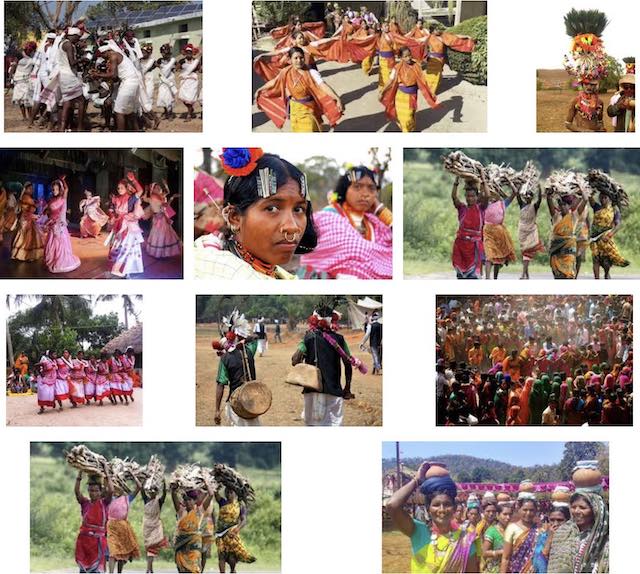Abstract 9: Inversion of the Locus of Enunciation of knowledge in Time Commences in Xibalba by Luis de Lion
Paper presented for “Tribes In Transition-II: Reaffirming Indigenous Identity Through Narrative” (National Conference) – New Delhi
EKTA KANDHWAY
Centre for European & Latin American Studies, Jamia Millia Islamia, New Delhi
KEYWORDS: CULTURE, EUROCENTRISM, NARRATIVES, NOVEL, FOURTH WORLD
This paper studies the subversion of eurocentrism in the geopolitics of knowledge in the novel El tiempo principia enXibalbá (Time Commences in Xibalba) published in 1985, considered the masterpiece of the Guatemalan indigenous writer Luis de Lion. The novel stands apart from earlier indigenous writings in that it is the first novel written by an indigenous writer on the topic of indigeneity.
Written in 1970s, in the backdrop of the Guatemalan Civil war (1960-1996) during which THE government forces massacred more than 200,000 Maya indigenous people (De Lión was also abducted by a death squad on May 15, 1984 and later a military diary found in 1999 confirmed his assassination), the novel symbolizes the outright rejection and disruption of the status quo of colonial domination in Guatemala. This path-breaking work initiated a whole new project of epistemological as well as political decolonization of the indigenous community, and is considered a milestone in the emerging New Maya literature of Central America.
The novel is structured around the concept of Xibalba, the underworld of the Maya creation narrative taken from the Populvuh. My paper will examine how Luis de Lion, in this novel, inverts the ‘knowledge/power relation’ and creates an alternative locus of enunciation of knowledge away from the western epistemology. This rejection is evident in the content as well as the structure of the novel. The importance of presenting such a study in this conference is to bring out awareness about such literary projects taking place in other parts of the world and a sense of solidarity among the members of global indigenous communities, the so-called “Fourth World”.
BIONOTE: Ekta Kandhway is currently pursuing her PhD at the Centre for European & Latin American Studies, Jamia Millia Islamia, New Delhi. She may be contacted at the email ID: [email protected]
Source: Book of Abstracts for the ICSSR-sponsored Two-Day National Conference Tribes In Transition-II: Reaffirming Indigenous Identity Through Narrative organised by The Department of English & Outreach Programme Jamia Millia Islamia (New Delhi, 27-28 February 2017)
Courtesy Dr. Ivy Hansdak, Assistant Professor, Department of English, Jamia Millia Islamia University New Delhi (email 4 October 2017)
Up-to-date reports by Indian experts and journalists
Search tips
Combine the name of any particular state, language or region with that of any tribal (Adivasi) community.
Add keywords of special interest (music, poetry, dance just as health, sacred grove and biodiversity); learn about the rights of Scheduled Tribes such as the “Forest Rights Act” (FRA); and the United Nations “Declaration on the Rights of Indigenous Peoples”, “Universal Declaration of Human Rights”, “women’s rights”, or “children’s right to education”.
Specify any other issue or news item you want to learn more about (biodiversity, bonded labour and human trafficking, climate change, ecology, economic development, ethnobotany, ethnomedicine, global warming, hunter-gatherers in a particular region or state, prevention of rural poverty, water access).
For official figures include “scheduled tribe ST” along with a union state or region: e.g. “Chhattisgarh ST community”, “Himalayan tribe”, “Scheduled tribe Tamil Nadu census”, “ST Kerala census”, “Particularly Vulnerable Tribal Group Jharkhand”, “PVTG Rajasthan”, “Adivasi ST Kerala”, “Adibasi ST West Bengal” etc.
In case the Google Custom Search window is not displayed here try the following: (1) toggle between “Reader” and regular viewing; (2) in your browser’s Security settings select “Enable JavaScript” | More tips >>
Note: hyperlinks and quotes are meant for fact-checking and information purposes only | Disclaimer >>
List of websites covered by this Google custom search engine
Academia.edu (platform for academics to share research papers) – www.academia.edu
Archive.org – https://archive.org
Centre for Science and Environment – https://www.cseindia.org
Current Conservation – https://www.currentconservation.org
Development and Cooperation (D+C) https://www.dandc.eu
Down To Earth (India) – www.downtoearth.org.in
India Environment Portal – www.indiaenvironmentportal.org.in
Harnessing Nature Magazine – https://harnessingnature.online
Mongabay-India – https://india.mongabay.com
M S Swaminathan Research Foundation – www.mssrf.org
Navdanya (protecting India’s biodiversity based food heritage) – https://navdanya.org
Third World Network (Penang, Malaysia) – https://twn.my
The Shola Trust (nature conservation in the Nilgiri region) – www.thesholatrust.org

Indian online periodicals and platforms | Images view >>
~ ~ ~
Personalize your CustomSearch by combining other search words >>
(e.g. name of a tribal community and region, a craft, or dance and puppetry)
Research the above issues with the help of Shodhganga: A reservoir of theses from universities all over India, made available under Open Access >>
Note: hyperlinks and quotes are meant for fact-checking and information purposes only | Disclaimer >>
Find publications by reputed authors (add “open access” for freely downloadable content)
PDF-repository: texts quoted & further reference (Google Drive) >>